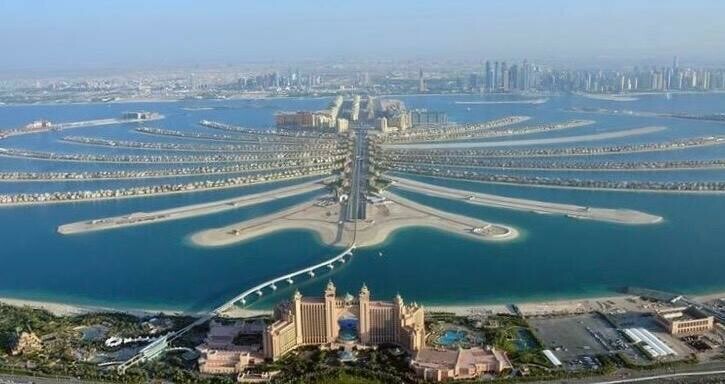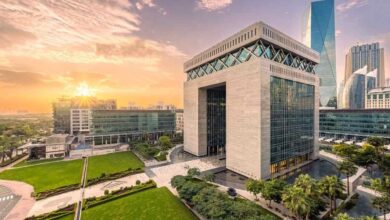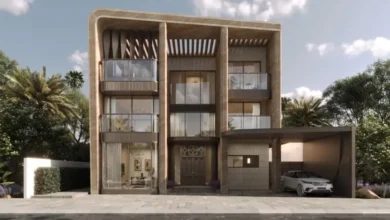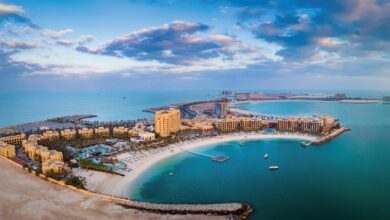
Buying patterns point towards “genuine end users of real estate rather than speculative investors”, stated Faisal Durrani, Partner – Head of Research, MENA at Knight Frank, the global real estate consultancy.
“Over the last 18-24 months, Dubai has emerged as the world’s deepest market for $10 million-plus home sales, with high net worth individuals (HNWI) looking for prime luxury beachfront villas,” Durrani told Business Recorder during a conversation in Dubai.
In fact, over the last 12 months, Dubai has recorded almost the same number of $10 million home sales as London and New York combined, according to Knight Frank’s recent Destination Dubai report, which highlighted all the factors that make the emirate an attractive place to live, work and invest in.
“This is a remarkable achievement for a market as young as Dubai,” said Durrani.
“It gives you a good idea of the appetite for luxury residential real estate from overseas investors, in particular.
“In any market property cycles, especially in young emerging markets, there tends to be greater volatility, but this time around, the fundamentals underpinning house price growth are very different to the past.
How is prime property defined in Dubai?
Prime residential real estate around the world is not necessarily easy to identify, according to Durrani, as they are either in the central business district of a city or immediately adjacent to a central business district.

Dubai has five central business districts, so in order to assess this, Knight Frank looked at every single residential transaction going back 22 years in order to identify neighborhoods where 10% of deals taking place at more than DHS10 million, and that were consistent for three years.
Currently, only four neighborhoods qualify — The Palm Jumeirah, Emirates Hills, Jumeirah Bay Island and as of Q1 this year, Jumeirah Islands, according to Knight Frank.
Luxury market for the win
One will need to go back to the start of the pandemic to understand why the luxury market has done so well.
“UAE’s response to the pandemic definitely helped. It was routinely the world’s most vaccinated nation, and that accolade resulted in Dubai being one of the first cities in the world to open.
“A lot of these people got to experience the softer factors that make Dubai an attractive place to live and work.”
Last year, Dubai was the third-most visited country in 2023 with 17.2 million arrivals in 2023 (behind London at 18.8 million visitors and Istanbul, which welcomed 20.2 million tourists according to Euromonitor and the Government of Dubai.
Demand outstrips supply
This has resulted in a city-wide glut.
“We have also started tracking the volume of home listings across Dubai, across the entire city, across neighbourhoods and price points were down about 23% YoY, but if we jump to the $10-million market, the number of homes for sale today is down 50% YoY.
“Developers are racing to keep up. People who are purchasing the homes are not doing so because they want to flip them. They are purchasing them to use for personal reasons.”
Knight Frank’s Destination Dubai report earlier this year found in a survey of global HNWI, that 49% of those with a personal net worth in excess of $20 million (UHNWI) would like to make a real estate investment in the UAE in 2024.
A further 30% would like to acquire property in the country over the next 2-5 years.
‘Lifestyles of the Rich and Famous’
That Dubai is a magnet for the global wealthy is no secret.
In 2022, Indian billionaire Mukesh Ambani set a new record in the Persian Gulf emirate with his $163 million Palm Jumeirah mansion.
On Monday, it was reported that Brazilian soccer player Neymar Jr bought a $54 million penthouse in the Bugatti Residences by Binghatti, located in Business Bay.
Dubai’s favourable tax regime, ease of doing business, and evolving visa restrictions regarding its coveted Golden Visa, have made it an expat haven and has drawn much foreign investment over the years. This is not quite unlike from the tiny French principality of Monaco, whose legendary tax-free regime has been attracting the global rich for decades to reside and park wealth.
Dubai is also on track to becoming fourth largest financial center globally, behind London, New York and Singapore, crucially overtaking Hong Kong, according to Knight Frank data.
“This pole initiative is expecting to cost somewhere in the range of $7.8 trillion, and we already see that investment rolling out, for example, the commitment to expand the $34-billion Al Maktoum International airport, making it the largest in the world,” said Durrani.
“In a sentiment-driven market, these developments are so important, because there is such a close correlation between how people feel and how much activity there is in the real estate market.
“This is of course, intangible, but if you look at the Purchasing Managers’ Index (PMI) readings for the UAE, it recorded the highest rating for anywhere in the world underpinned by job creation rates that had hit an 8-year high,” Durrani explained.
These effects were also felt in the market for office space, with long waitlists for prime office spaces already in play.
“Dubai, Abu Dhabi, Riyadh — these three cities are quite anomalous on the world stage at the moment, especially Dubai in that we have virtually run out of prime office space,” said Durrani. “There is 4.2 million square feet of new space coming in next 5 years, most of which is pre-leased.”
Future outlook
As things stand, the real estate market is up 20% YoY, according to Durrani.
“We are now 6.5% above 2014 market peak, and that’s just a citywide average. Clearly, there are locations that have done much better than that. Last year we were forecasting price growth of 3.5% for 2024, and this year is expected to end the year higher as the market has continued to grow and expand not as originally forecast.”
Vulnerabilities
As with anything else, the market is still prone to vulnerabilities and external influences, the biggest risk being the risk of a global economic slowdown.

“Dubai is a global city and anything that affects the world affects the city,” cautioned Durrani, indicating that fluctuations in oil prices could also affect Dubai’s growth.
“A severe decline in oil prices could curb economic growth in other economies in the region. Dubai’s economy isn’t underpinned by oil, but if other regional economies become affected by falling oil prices, that may hurt overall business sentiment across the Middle East.
But each 10% increase in oil prices sees a 0.1% decline in global economic growth, and a 0.4% increase in global inflation, according to the International Monetary Fund (IMF).
“If we have a sudden spike in oil prices, due to regional unrest, there is a subsequent knock-on impact on global economic growth, and also a knock-on impact on global inflation levels.”





